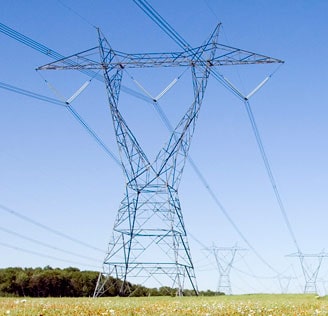Alberta’s weighted average Power Pool price for June is currently $125.41/MWh. Relative to last week’s price of $143.35/MWh, this is a further decrease of $17.94/MWh or 12.5%. While pricing over the past week has averaged $85.22/MWh, helping to lower the monthly price, hourly volatility is still an issue. Prices reached over $200/MWh during nine periods in the past week, mostly on the 21st, resulting in the daily price settling to $154.86/MWh. Hourly demand is currently averaging 9,472MW, a slight increase of 59MW or 0.6%. Intermittent outages, including Battle River 4, Sundance 4 and HR Milner, limited the supply cushion, which also increased market volatility; all generators have since come back online. High daily temperatures in parts of the province earlier this week further impacted hourly market volatility.
On Wednesday June 23rd, Amazon announced a second renewable energy investment, by purchasing power from a 465MW solar generator, southeast of Calgary. Travers Solar, which is slated to be one of the largest solar projects in Canada, is set to come online in late 2022. Details of the agreement have not fully been disclosed, but Amazon has stated the agreement will cover purchasing 375MW from the solar generator. Over the past few months, we have seen an uptick in corporate investments in renewable power, as Alberta aims to be 100% renewable by 2030.
The weighted average Hourly Ontario Energy Price (HOEP) is at 2.3¢/kWh for the month of June, a dip of 8% or 0.2¢/kWh compared to last week’s settle. While supply and demand have both decreased at similar rates (-3%, 16,297MW and -4%, 15,256MW), the shift in the supply mix toward less expensive generation sources has helped push prices lower. The supply of natural gas has dropped 44% (1,866MW) compared to average June levels, while wind has made strong injections to the grid (+21%, 1,041MW) and nuclear has increased its baseload by 3% (10,193MW). Other generation sources have decreased their supply: hydro (-7%, 3,344MW), solar (-5%, 122MW), and biofuel (-28%, 33MW). With the first Global Adjustment estimated at 10.8¢/kWh and the first estimate recovery rate at 0.6¢/kWh, June’s total market price is 13.7¢/kWh.
In other electricity news, the C.D. Howe Institute recently released a report on how electricity subsidies have distorted market prices in Ontario, where prices have increased while demand has decreased – the opposite of the laws of supply and demand. They highlight that the province’s annual electricity system costs have increased from $12B in 2006 to $21B in 2019, an increase of 75%, while demand has dropped 10%. The main cause behind this increase are green energy contracts. The global adjustment (GA) pays out the difference between what green energy providers receive through contracts and what they receive on the open market; between 2006 and 2020, the GA has increased 1,900%, from $700M to $14B annually. The Institute listed some recommendations to correct rising system costs, including being less reliant on electricity subsidies, more focused on price signals for both industrial and residential customers, and providing the Ontario Energy Board (OEB) with more regulatory powers to provide a check on government decisions related to the electricity sector.
– Mark Ljuckanov, Energy Advisor / Ryan Cosgrove, Energy Data Analyst / Sarah Clemente, Energy Data Analyst








Add comment